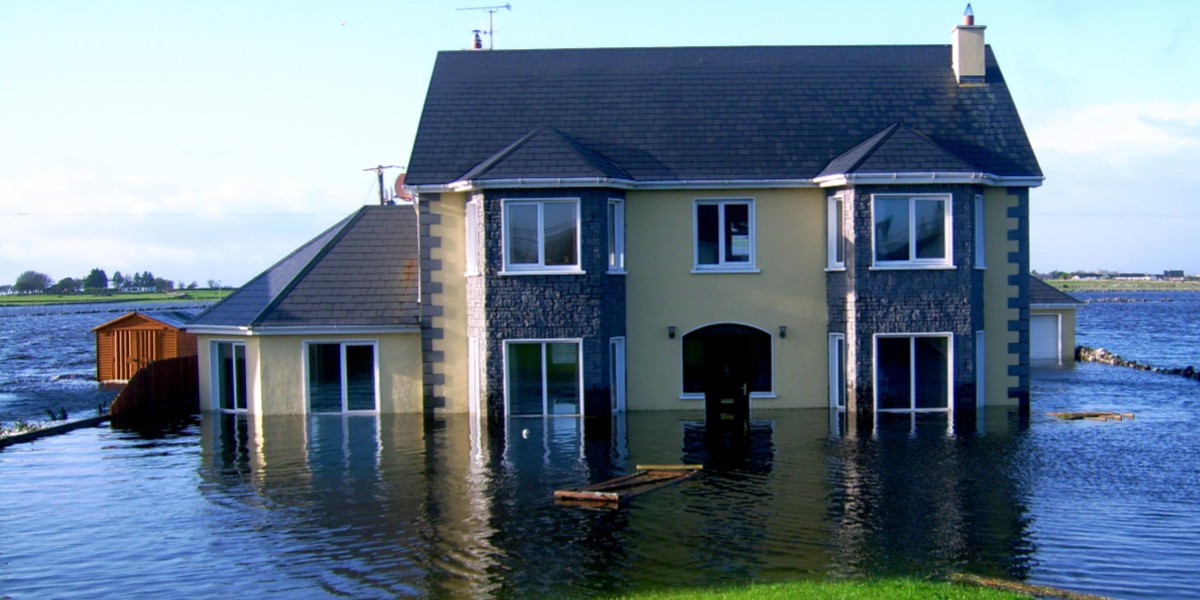How Natural Disasters Affect Your Property

Buying real estate is a sound investment and a great way to get you ready for retirement. Purchasing a rental property ensures that you will continually get income while diversifying your investment portfolio. Whether you’re investing in residential property, commercial property, a multi-unit property, and agricultural property, then, depending on the area that you have invested in, you may be vulnerable to the effects of climate change and the natural disasters it produces. It is known that the real estate industry is always changing, and to stay on top, you must always be ready for those changes. In other words, it is important to expect the unexpected. There is nothing more unexpected than the effects of climate change, which can have immense impacts on areas that are more prone to natural disasters. Keep reading to find out how your property could be impacted by natural disasters, and if you’re looking to purchase property, then speak with a non-recourse loan lender today.
A Decrease in Value
If the property you have invested in is in an area that is plagued by floods, fires, or erosion, then your property’s value may be negatively impacted. To avoid floods, there is less demand for waterfront homes. Traditionally, these types of homes have been the most expensive and most sought-after, especially for vacation rentals. The increase in vacation rental properties is taking over the hotel market, and areas that are are traditionally popular may see some change, potentially seeing a decrease in value. A study from Columbia University and the nonprofit First Street Foundation looked at over 2.5 millions coastal properties in Massachusetts, Maine, New Hampshire, and Rhode Island between 2005 and 2017, and found that increased tidal flooding caused by rising sea levels caused homes to depreciate in value by $403.1 million.
Recently, California has been plagued by fires that ravish its landscape, burning down homes and damaging hundreds of thousands of acres of property, costing the country billions of dollars in devastating damages. In areas that are at risk of severe damage, whether it be from a fire or a flood, there is always the potential for well-developed communities and marketplaces to rebuild, introducing new opportunities. Buyers may begin seeking out properties that offer discounts, buying up damaged land and altering their use for marketplaces. Property owners face the decision of whether to stay and rebuild in areas that are damaged, or to sell and start fresh. That being said, natural disasters can impact a property, but not necessarily the value of the home.
Higher Property Taxes
Some areas are routinely being affected by certain natural disasters, which naturally drive people away. If you live in a part of a country that sees disasters like floods and fires that has fewer residents and a smaller tax base, you might expect property taxes to rise significantly, because someone has to pay for the infrastructure in that area. Additionally, the property taxes will be higher to pay for any damage that is likely to come.
Building a Resilient Portfolio
Natural disasters increasingly highlight the vulnerability of individual assets, locations, and metropolitan areas. When prioritizing risks, investors need to create new approaches to the real estate market and develop new mitigation strategies. In order to stay competitive in a changing market, it is essential to prioritize the risk of these natural disasters and build for a resilient portfolio on a property, and potentially citywide, bases. Factoring risks may be the new normal in the industry, and for good reason, as natural disasters have the ability of affecting anyone, anywhere. Real estate is a business of location, and as climate change continues, without investigation and risk management, investors are navigating the industry blindly without any kind of educated knowledge of what is going on with their investments.
As an investor in real estate, you may be needing to consider climate as a part of your responsibility to your stakeholders. Climate consideration will help in ensuring that your portfolio is not overexposed in a market that is adopting more risk. Further, when you incorporate additional mitigation measures for assets that are at risk, you leave some room for error that, overall, shouldn’t affect your portfolio too much to the point where you are not able to recover. Another way to reduce asset loss is to diversify your portfolio. Instead of investing in property in one area, diversify your portfolio to include areas that still have a competitive market but don’t have the same risk that other areas prone to natural disasters do.
The real estate market faces considerable risks from rising sea levels and other natural disasters as a result of climate change. More extreme weather events will occur with greater frequency and intensity, making homeowners allocate their portfolio to make up for investment losses. Climate change is extremely disruptive, but also extremely opportunistic — only for those who are prepared for it.
First Western Federal Savings Bank is dedicated to helping you buy the property you desire — whether it is residential property, commercial property, multi-unit property, or agricultural property. If you are ready to purchase real estate with your IRA, then contact us today, and we can help you. Your non-recourse loan is waiting, so apply today!


